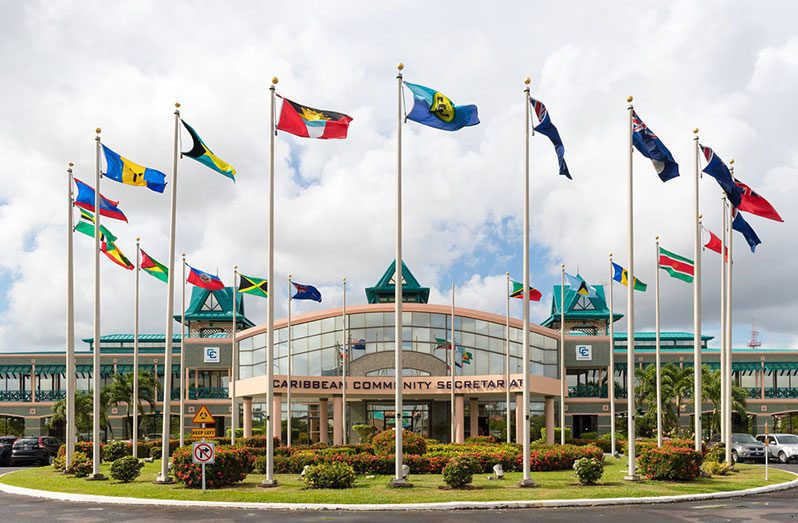IN light of Venezuela’s latest move to lay claim to Guyana’s territory through an internal agreement between the nation’s government and its opposition, the Caribbean Community (CARICOM) has reiterated its “firm and unwavering” support for the maintenance and preservation of the sovereignty and territorial integrity of Guyana.
At a meeting in Mexico City on September 6, 2021, the Heads of Delegation of the Venezuelan Government and the opposition Unity Platform of Venezuela agreed to ratify Venezuela’s purported rights over the Essequibo, Guyana’s territory, and signed an agreement to that effect.
This agreement was, however, rejected by the Government of Guyana, which, through the Foreign Affairs and International Cooperation Ministry, stated: “That agreement is an overt threat to the sovereignty and territorial integrity of Guyana. Guyana cannot be used as an altar of sacrifice for settlement of Venezuela’s internal political differences.
“While the Government of Guyana welcomes domestic accord within Venezuela, an agreement defying international law and process is not a basis for mediating harmony.”
Having taken note of the round of negotiations in Mexico, CARICOM also reaffirmed its support for the ongoing judicial process of the International Court of Justice that is intended to bring a peaceful and definitive end to the long-standing controversy between the two countries, and urged Venezuela to participate in the process.
Guyana’s position, as stated before, is that the controversy with Venezuela is properly before the International Court of Justice (ICJ) and will remain there for peaceful resolution.
In March 2018, Guyana filed its application in the International Court of Justice (ICJ) seeking an affirmation of the validity of the 1899 Arbitral Award and the international boundary that it established. The ICJ ruled on December 18, 2020, that it has jurisdiction to hear the border controversy case.
Guyana is seeking to obtain a final and binding judgement that the 1899 Arbitral Award, which established the location of the land boundary between then British Guiana and Venezuela, remains valid, and that the Essequibo region belongs to Guyana and not Venezuela.
A report from Energy Company, S&P Global Platts, however, related that Venezuela, in its agreement, rejects the ICJ’s declaration of jurisdiction over the issue, and urged Guyana to engage in direct negotiations.
“We will call on Guyana to resume the path of negotiations in order to reach an agreement on the territory,” representative of Venezuelan President Nicolas Maduro, Jorge Rodríguez, was reported as saying.
Venezuela has said, for the longest while, that it is not interested in having this matter resolved by the court.
At a recent outreach in Region Two, President Dr. Irfaan Ali, said: “The international community is clear; CARICOM is clear that the International Court has jurisdiction to hear the matter. So, the propaganda that the court does not have the jurisdiction, we’ve gone past that.”
The President said that the government will focus on the Rule of Law, and continue to respect it.
“The Court has already ruled that they have jurisdiction, and that is where all of our efforts are concentrated. There is no sideshow; there is no propaganda. None of that matters. What matters is the Court, and that is where Guyana is,” the Commander-in-Chief of the Armed Forces said.
The President noted that Guyana is committed to living peacefully with all of its neighbours, and to strengthen the relationships with them all, but this courtesy must be reciprocated.
“We’re committed to democracy, and we are committed to the Rule of Law; we don’t waiver our principles. We don’t waiver depending on the season; we don’t waiver depending on who is in government… We have always respected the Rule of Law, and we have always worked in accordance with the Rule of Law… we have always respected the sovereignty and territorial integrity of our neighbours,” President Ali said.



.jpg)









